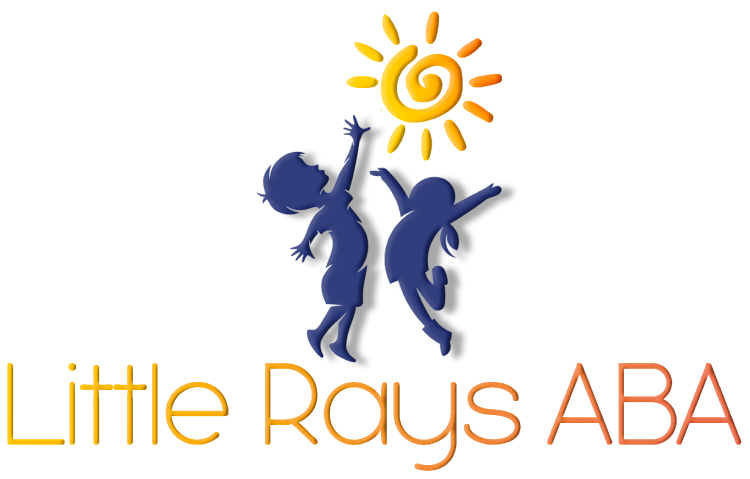
The Impact of the RBT Ethics Code on ABA Therapy Practices
Understanding the RBT Ethics Code
Applied Behavior Analysis therapy depends on clear ethical guidelines to protect clients and maintain professional standards. The RBT Ethics Code provides a dedicated framework for Registered Behavior Technicians (RBTs) working under Board Certified Behavior Analysts (BCBAs). Effective January 1, 2022, this code outlines expectations across responsible conduct, responsibility to clients, and competence and service delivery. RBTs, families, educators, and clinicians rely on these guidelines to ensure safe, respectful, and effective ABA therapy practices in Florida and beyond.
This article examines how the RBT Ethics Code shapes daily ABA therapy, from safeguarding client welfare to strengthening professional development. It offers a clear overview of core code sections, practical examples of ethical decision making, and insight into reporting and enforcement. By understanding this ethical framework, stakeholders can support better therapy outcomes and uphold the credibility of the ABA field.
Reviewing Core Code Sections
The RBT Ethics Code (2.0) is divided into three core sections that cover ethical responsibilities at every level of practice. Each section establishes distinct requirements for RBTs to follow.
| Code Section | Focus | Key Requirement |
|---|---|---|
| Section 1 Responsible Conduct | Professional integrity | Honest communication and conduct |
| Section 2 Responsibility to Clients | Client welfare | Prioritizing client safety and rights |
| Section 3 Competence and Service Delivery | Ongoing proficiency | Active supervision and skill updates |
Section 1 Responsible Conduct
Section 1 sets general rules for ethical behavior and integrity. RBTs must truthfully represent their credentials and avoid conflicts of interest. They should promptly report any suspected ethics violations to their supervisor or the Behavior Analyst Certification Board (BACB).
Section 2 Responsibility to Clients
Section 2 emphasizes client welfare. RBTs must obtain informed consent, respect client rights, and advocate for each individual’s best interest. Any adjustment to a client’s behavior plan requires approval from a supervising BCBA.
Section 3 Competence and Service Delivery
Section 3 focuses on maintaining professional competence through ongoing supervision, documentation, and training. RBTs must participate actively in BCBA-led review sessions and pursue continuing education to deliver high-quality ABA services.
Ensuring Client Safety and Rights
Protecting client safety and upholding rights is at the heart of the RBT Ethics Code. It guides technicians to create environments where individuals with autism spectrum disorder receive respectful, evidence-based interventions.
Informed Consent
- RBTs must secure voluntary, written consent from clients or guardians before beginning services.
- Consent forms should explain assessment methods, intervention goals, and potential risks in clear language.
Client Advocacy
RBTs act as advocates by:
- Monitoring intervention outcomes to ensure planned strategies meet goals.
- Alerting supervisors to any concerns about client well-being or safety.
- Adjusting session structure or environment when necessary to prevent harm.
Maintaining Professional Boundaries
Clear professional boundaries preserve objectivity and trust. The Ethics Code outlines how RBTs should navigate relationships with clients, families, and colleagues.
Avoiding Dual Relationships
RBTs should not provide services to friends or family members. Accepting personal invitations that blur professional lines can impair judgment and client care.
Defining Roles Clearly
RBTs must explain their role and limits of practice at the start of each engagement. This includes:
- Clarifying that behavior plans cannot change without BCBA approval.
- Setting expectations for session structure, documentation, and communication.
Upholding Confidentiality and Privacy
Handling client information with care is a nonnegotiable part of ethical practice. The code provides strict guidance for protecting personal data.
Handling Client Records
- RBTs must store all records securely, whether in digital or paper form.
- Access should be limited to authorized personnel only, following HIPAA standards.
Securing Therapy Environments
Whether in a clinic, school, or home, RBTs should:
- Ensure private areas for sessions when discussing sensitive topics.
- Use pseudonyms in shared documents or presentations to protect identity.
Embracing Cultural Competence
The Ethics Code requires RBTs to respect and respond to diverse cultural backgrounds. This competency fosters trust and improves intervention effectiveness.
Respecting Diversity
RBTs should learn about each client’s cultural practices and values. This may involve:
- Consulting with families about language preferences.
- Adapting reinforcement strategies to align with cultural norms.
Tailoring Interventions
Culturally responsive strategies can include:
- Using culturally relevant examples in teaching tasks.
- Modifying communication style to match client preferences.
Strengthening Supervision and Oversight
Effective supervision ensures that RBTs adhere to ethical standards and deliver consistent, evidence-based care.
BCBA Supervision
RBTs must be supervised by a BCBA throughout service delivery. Best practices include:
- Weekly one-on-one sessions to review progress and challenges.
- Joint goal setting for improving technical skills and ethical decision making.
Documentation Practices
Accurate, timely documentation supports ethical compliance. RBTs should log:
- Session dates, goals, and outcomes.
- Any ethical concerns raised and steps taken to resolve them.
Reporting Ethics Violations
A clear reporting process reinforces accountability and protects clients and practitioners alike.
Reporting Channels
The BACB accepts ethics notices in three ways:
- Alleged violations reported by third parties
- Self-reported concerns by certificants
- Publicly available documentation of potential breaches
Investigation Process
Once a report is filed, the BACB:
- Reviews the notice under Code-Enforcement Procedures.
- Keeps notifiers and subjects informed of relevant actions.
- Strives to resolve cases in a timely manner to maintain field integrity.
Committing to Professional Development
Continuous learning is a core tenet of the Ethics Code. RBTs strengthen their practice and ethical awareness through ongoing education.
Ongoing Education
Recommended activities include:
- Webinars on new ABA research and methods.
- Workshops covering updates to the RBT Ethics Code and BACB standards.
Skill Enhancement
RBTs can enhance competence by:
- Attending local conferences or peer-led study groups.
- Reviewing case studies that highlight ethical dilemmas and best practices.
Measuring Ethics Code Impact
Evaluating how the RBT Ethics Code affects ABA therapy helps demonstrate its value and identify areas for improvement.
Client Outcomes
Programs that emphasize ethics report:
- Increased consistency in intervention delivery.
- Higher family satisfaction and trust in services.
Industry Credibility
A robust ethical framework promotes:
- Professional credibility among ABA providers.
- Greater acceptance of ABA therapy as an evidence-based treatment.
Conclusion
The RBT Ethics Code serves as the cornerstone for ethical practice in Applied Behavior Analysis. By following its principles, such as client safety, honesty, boundaries, cultural competence, and professional growth, RBTs contribute to better therapy outcomes and uphold the field’s reputation. Families, educators, and clinicians can support this effort by staying informed about ethical requirements and engaging in open communication with behavior technicians and supervisors. As ABA services continue to evolve, a shared commitment to ethical excellence will ensure high-quality, respectful care for individuals with autism and related conditions.
At Little Rays ABA, we prioritize ethical standards to ensure the best outcomes for your child. Our team adheres to the RBT Ethics Code, guaranteeing safe, respectful, and culturally competent care in every ABA therapy session. We believe that transparent communication and continuous professional growth lead to a stronger partnership with families and educators.
Interested in learning more about our approach? Contact us today to discuss how our ethical, evidence-based ABA therapy in Florida can help your child thrive. If you’re an RBT searching for field opportunities, check out our careers page.
Frequently Asked Questions
What is the RBT Ethics Code and why is it important?
The RBT Ethics Code outlines the professional guidelines for Registered Behavior Technicians to ensure safe, effective, and respectful practice in Applied Behavior Analysis (ABA). It emphasizes client safety, cultural competence, honesty, and continuous professional development to deliver the best care for individuals with autism.
How does the RBT Ethics Code affect the quality of therapy?
By following the Ethics Code, behavior technicians ensure that therapy is conducted with integrity, respect, and sensitivity. This code enhances therapy outcomes by focusing on ethical standards that promote well-being, trust, and effective interventions tailored to each individual’s needs.
How can families support ethical practices in ABA therapy?
Families can stay informed about the RBT Ethics Code and engage in open dialogue with therapists and supervisors. This ensures that ethical standards are upheld, making the therapy process transparent and ensuring the child’s best interests are at the heart of all interventions.
SOURCES:
https://www.bacb.com/ethics-information/reporting-to-ethics-department/
https://www.bacb.com/wp-content/uploads/2022/01/RBT-Ethics-Code-240830-a.pdf
https://www.bacb.com/wp-content/uploads/2022/01/Ethics-Code-for-Behavior-Analysts-240830-a.pdf
https://www.relias.com/blog/rbt-code-of-ethics
https://pmc.ncbi.nlm.nih.gov/articles/PMC9120282/
Related Posts





